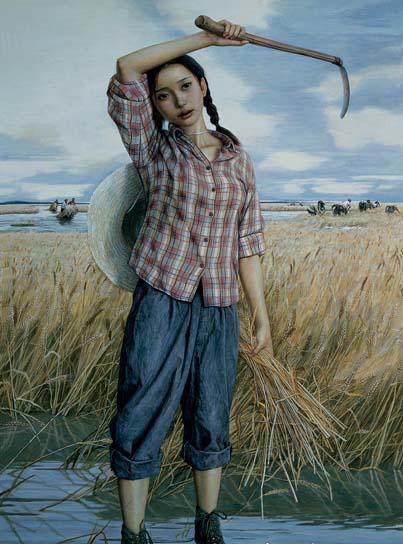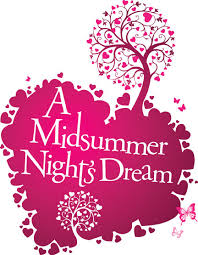William Shakespeare is regarded as the greatest writer in the world of English literature. He was an English poet, a dramatist, and an actor. Shakespeare was born and brought up in Stratford-upon-Avon and is often regarded as the ‘Bard of Avon.’ He is considered the national poet in England. His works consist of about 38 plays, 154 sonnets, some long narrative poems, and other verses. There is considerable controversy regarding his physical attributes, sexuality, religious beliefs, etc. Some of his famous dramatic tragedies include Hamlet, Macbeth, Othello, and King Lear. Shakespeare died on the 23rd of April, 1616, at 52, survived by his wife and two daughters.
About Seven Ages of Man
The poem Seven Stages of Man is an extract taken from Shakespeare’s famous comedy, ‘As You Like It.’ It is a pastoral comedy believed to have been written around 1599 and first published in the First Folio (1623). The poem’s speaker is melancholic Jaques in Act 2, scene 7. The poem starts with the famous line “All the world’s a stage” and is regarded as a mouthpiece of Shakespeare’s philosophy.
Seven Ages of Man Origin
The idea of the comparison between the world and a stage was a prevailing notion. The year Shakespeare was born, Richard Edwardes’s play Damon and Pythias were written, which contains the lines:
“Pythagoras said that this world was like a stage
Whereon many play their parts; the lookers-on, the stage.”
The words might have also arrived from Petronius’ quod fere totus Mundus exerceat histrionem (because almost all worlds are actors), a phrase widely circulated in England.
Seven Ages of Man Summary
In the poem, Seven Ages of Man, Shakespeare compares the entire world to a theatrical stage, where all human beings perform their allotted role given by God. Every individual has to go through seven acts, which are seven stages of man’s life.
“At first the infant,
Mewling and puking in the nurse’s arms.”
In the first stage, in this phase of his life, a man appears as a child in the world. As a child, he is a helpless creature. He cries in his nurse’s arms for one reason or the other. He cries and vomits.
“the whining school-boy with his satchel
And shining morning face, creeping like a snail
Unwillingly to school.”
In the next phase of his life, a man appears as a child in the world. He goes to school with a bag hanging from his shoulder. He goes to school creeping like a snail. He marches to the school unwillingly.
“the lover,
Sighing like furnace, with a woeful ballad
Made to his mistress’ eyebrow.”
In the third stage of his life, a man plays the part of a lover. He grows into a young man full of desires, ambitions, and dreams. He becomes a romantic young man. He falls in love and sights like a furnace. He begins to write sad poems to his beloved. He cannot control his sad feelings.
“a soldier,
Full of strange oaths, and bearded like the pard,
Jealous in honour, sudden, and quick in quarrel,
Seeking the bubble reputation
Even in the cannon’s mouth.”
In the fourth stage of his life, man becomes a foul-mouthed soldier who has learned queer words. At this stage, he tries to give himself a formidable look with a beard-like part. He is emotional and jealous. He quarrels with others for his honor and grace. He hankers after temporary and bubble fame.
“the justice,
In fair round belly, with good capon lin’d,
With eyes severe, and beard of formal cut,
Full of wise saws, and modern instances”
In the fifth stage of his life, he becomes a judge. He becomes mature and experienced in his thoughts. The heat of youth has completely cooled down, and he becomes very realistic. He wishes to grab wealth by foul or fair means. He begins to accept bribes and thus adds much to his material comforts. He becomes ease-loving and therefore becomes fat. His belly becomes round. He eats healthy fowl and chicken presented to him as a bribe. His eyes become severe, and he grows a beard of formal cut.
Then, in the sixth stage of his life, man grows old. He looks quite ridiculous in his movements. He wears glasses because his eyesight is weak. His shoes become wide for his feet. His voice suffers a change. It becomes a shrill and quivering whistle.
However, in the final stage, the man again turns into a child. He seems to forget everything. He becomes ‘toothless.’ His eyesight is weakened, and he is deprived of taste. He is ready to leave this world.
Shakespeare has the seven stages of man’s life with a touch of satire and cynicism. In each stage, man imagines himself as great and important, but there is something ridiculous in his behavior all through his life. Shakespeare described each man’s life stages with a great economy of words. He uses living and concrete images to explain the different stages of life. The use of the word ‘mewling’ of the infant’s cry and the school boy’s reluctance to go to school described in phases’ creeping like a snail’ are examples of living images.
Here is a detailed video playlist for the Summary and Analysis of the Poem:
This post was edited and updated on 8th April 2023, by Anjali Roongta.
Some online learning platforms provide certifications, while others are designed to simply grow your skills in your personal and professional life. Including Masterclass and Coursera, here are our recommendations for the best online learning platforms you can sign up for today.
The 7 Best Online Learning Platforms of 2022
- Best Overall: Coursera
- Best for Niche Topics: Udemy
- Best for Creative Fields: Skillshare
- Best for Celebrity Lessons: MasterClass
- Best for STEM: EdX
- Best for Career Building: Udacity
- Best for Data Learning: Pluralsight












